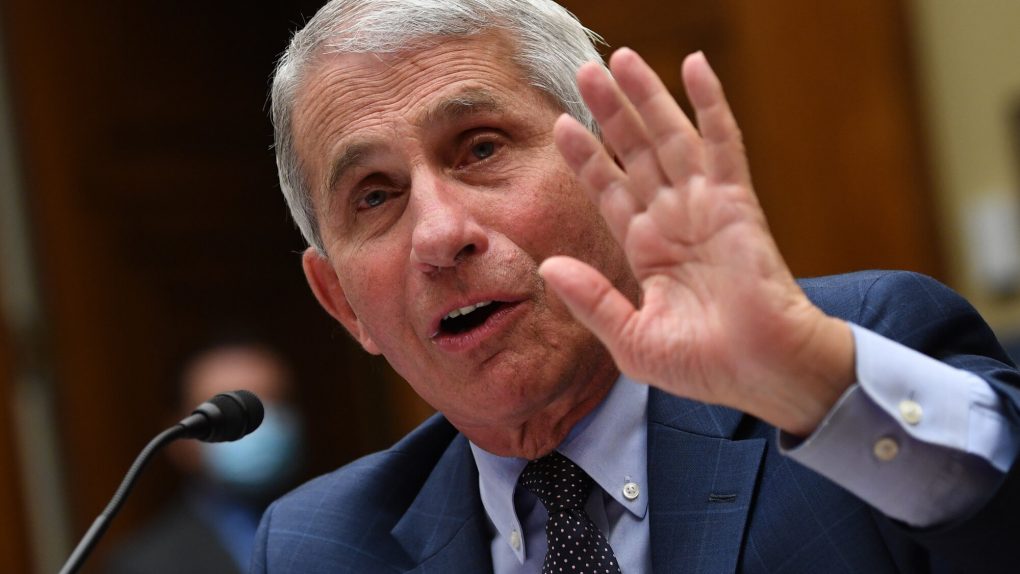- Dr. Fauci received his second dose of Moderna’s coronavirus vaccine last month.
- Still, Fauci has no plans to see his daughters more because it’s unclear if the vaccine protects against asymptomatic infection.
- It’s also unclear if someone vaccinated against COVID-19 can transmit it to someone else.
Nearly a year into the coronavirus pandemic, COVID vaccines from Pfizer, Moderna, and Johnson & Johnson have finally given us a reason to believe that life might return to normal in just a few months. Especially as the coronavirus vaccine rollout in the U.S. continues to pick up steam, there’s a strong possibility that President Biden’s goal of vaccinating 1.5 million Americans a day for a sustained period of time is achievable.
In fact, the U.S. has been administering an average of 1.55 million vaccine doses every day since last Thursday. If the vaccination rate can stay steady, there’s a strong possibility we’ll reach herd immunity sometime this summer. Still, the well-founded optimism stemming from the aforementioned vaccines shouldn’t be construed as a license for people to pay less attention to established coronavirus safety guidelines.
For starters, the coronavirus vaccines from Pfizer and Moderna are only 95% effective, which is to say that getting vaccinated doesn’t make you impervious to infection. Second, it’s still unclear if people who have been vaccinated can spread the virus to others.
Consequently, people should still wear masks when in public, follow social distancing guidelines, practice proper hand-hygiene, and lastly, avoid indoor gatherings whenever possible.
To this point, even Dr. Fauci — who received his second vaccine dose last month — has no plans to start spending more time with his family simply because he’s fully vaccinated at this point.
During a recent interview with NPR, Fauci was asked if he was more comfortable seeing his daughters after receiving his second dose.
Fauci responded:
No, I don’t think we have a free pass for that right now. The reason is several-fold. One, when you get vaccinated, you are protected 94% to 95% against clinical disease. But we’re not sure if you’re actually protected against asymptomatic infection. And that’s the reason why we want to be careful and continue to wear a mask.
It’s worth adding that the body still needs a few weeks to build up immunity to the coronavirus after receiving the second dose.
The CDC writes:
It typically takes a few weeks for the body to produce T-lymphocytes and B-lymphocytes after vaccination. Therefore, it is possible that a person could be infected with the virus that causes COVID-19 just before or just after vaccination and then get sick because the vaccine did not have enough time to provide protection.
While herd immunity is arguably within sight, it’s still a few months away even in a best-case scenario. In the interim, more contagious COVID-19 strains have made their way to the U.S., and adhering to COVID safety guidelines should remain a priority for everyone.








